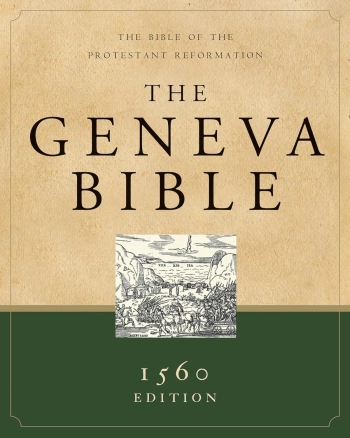1599 Geneva Bible (GNV)
The Geneva Bible: A Cornerstone of English Protestantism A Testament to Reform The 1599 Geneva Bible... Read More
The 1599 Geneva Bible, often abbreviated as GNV, stands as a monumental work in the history of English Bible translation and Protestant thought. Produced in Geneva, Switzerland, a haven for English exiles during the reign of Mary I, this Bible profoundly influenced English spirituality and culture.

The roots of the Geneva Bible trace back to the 1550s when English Protestant refugees, including William Whittingham, sought refuge in Geneva. This city, a stronghold of Calvinist theology, provided an intellectual and religious environment conducive to biblical scholarship. Recognizing the need for an English Bible that accurately reflected Protestant doctrine, these exiles embarked on a project to translate the Scriptures.
The first complete edition of the Geneva Bible was published in 1560 and quickly gained popularity in England. Its subsequent revisions, including the 1599 edition, refined the text and incorporated new insights.
The Geneva Bible distinguished itself from earlier English translations through several key features:
The Geneva Bible exerted a profound influence on English society and culture. It became the Bible of choice for many Puritans and other Protestant groups, shaping their worldview and religious practices. Its emphasis on individual biblical interpretation encouraged a more participatory approach to worship and fostered a strong sense of personal piety.
Moreover, the Geneva Bible's literary style and its use of vivid imagery left a lasting imprint on English prose. Its influence can be discerned in the works of William Shakespeare and other Elizabethan writers.
While the King James Version eventually surpassed the Geneva Bible in popularity, the latter's legacy endures. Its contributions to biblical scholarship, textual criticism, and the development of English prose continue to be recognized and appreciated.